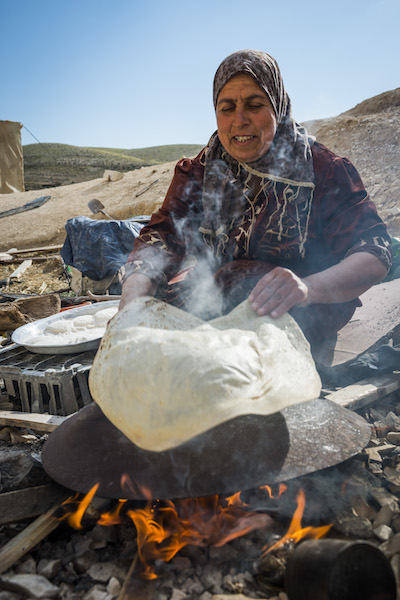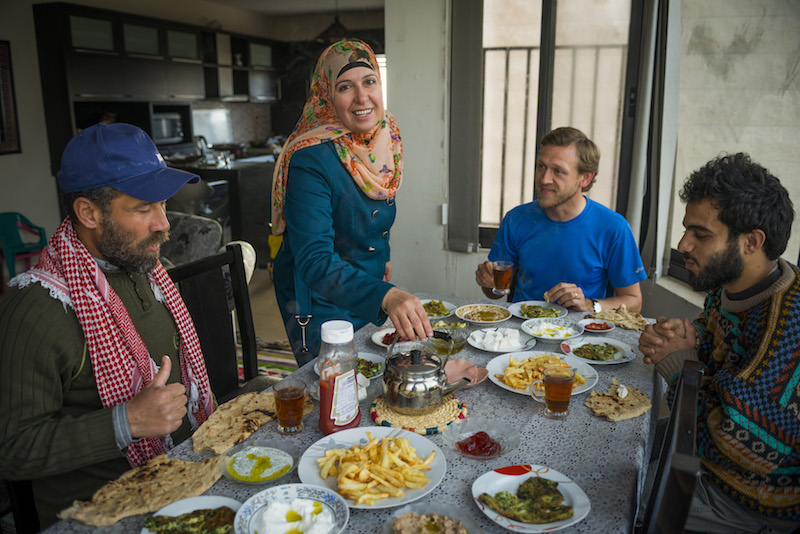Women in rural communities along the Masar – the long distance walking path in Palestine, have been empowered by their new roles of catering and welcoming walkers into their homes, showing authentic Palestinian hospitality and offering homemade traditional meals.This segment of female participation in the Masar – the path, has allowed female beneficiaries to take an active role, offering both tangible and intangible features of Palestinian life, traditions and customs to international visitors.
Rural women are being empowered through the Siraj Center and Masar Ibrahim al Khalil (the Abraham Path in Palestine) trainings, increasing their capacity to lead their own initiatives in their communities. A few of the training courses were on topics such as nutrition, hygiene, catering, first aid and women empowerment. As a result, employment opportunities and improved communication and cooperation among local committees and other communities are taking place.
According to testimonies of female beneficiaries in the rural village of Arrabeh, it was reported that they had financial benefits, as well as development on the personal level for themselves and their children, who have been inspired by visitors to learn other languages. They all stated that the intercultural learning experiences were a great benefit. The opportunities presented have allowed joint decisions to be taken in households for the better of family matters. The beneficiaries are proudly offering their authentic Palestinian hospitality, showing that Palestinians are a peaceful people with a great history rich in cultural and religious traditions. An accomplishment that the beneficiaries expressed was that they were able to break down the stereotypes held by westerners about Palestinians.
Through the Siraj Center and with the cooperation of the Masar Ibrahim al Khalil, women have had the incentive to produce high quality meals in a welcoming and comfortable environment, knowing that they will benefit from more visitors walking through their villages if their services provided are up to par with the travelers. As host families, they are also situating themselves to host other visitors, who are not necessarily on the Masar, therefore, they are available for hosting visitors overnight, and can access wider markets, increasing their household incomes.
From the beginning of the Masar Ibrahim al Khalil initiative, females of local councils, community-based organizations, women’s centers and Bedouin camps have all benefited directly or indirectly. As a result female participation, has given women a stronger voice and influence within their family financial matters, and household negotiation is taking place between males and females, thus reducing economic pressure on the male head of family.
Without male support of the overall goals of the Siraj Center and the Masar Ibrahim al Khalil, one of which aims at increasing female participation in rural communities, the results of the project would not be successful. Therefore, the stereotype of male dominated roles, keeping women out of sight, is slowly changing in the areas where the project is being implemented. The males understand the positive impact that a female can have in the development of their own household and local community. Many women are now able make family decisions in collaboration with their husbands, making it easier to manage their income.
There is a positive change in the way female involvement has become more and more attractive to other women in the villages. Women are becoming more confident with their new roles catering to internationals; they are voicing their opinions within their household, helping in the management and decision making of financial issues. Empowerment.


